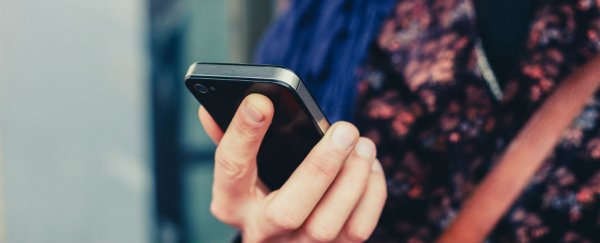If you've ever trawled the Internet for advice on how to save battery life on your phone, you'll know that the #1 tip is pretty much always the same: switch to Airplane Mode. Why? That Wi-Fi you're using might be one of the best things that ever happened to humanity, but it uses a crapload of energy.
The good news is that computer scientists and engineers in the US have demonstrated that it's possible to generate Wi-Fi transmissions using 10,000 times less power than conventional methods, and 1,000 times less than more energy-efficient alternatives such as Bluetooth. They're calling it Passive Wi-Fi, and we need it in our lives now.
"We wanted to see if we could achieve Wi-Fi transmissions using almost no power at all," said one of the team, Shyam Gollakota from the University of Washington. "That's basically what Passive Wi-Fi delivers. We can get Wi-Fi for 10,000 times less power than the best thing that's out there."
Gollakota and his team figured out how to achieve low-power Wi-Fi transmissions by separating the digital and analogue operations involved in radio transmissions. Over the past couple of decades, big improvements have been made to the digital components used in these transmissions, and they're now more efficient than ever. But no one's really bothered with the analogue component, which means it still uses up a lot of power.
So instead of using up a lot of power to general signals on its own, Passive Wi-Fi is able to selectively reflect incoming radio waves and construct a new signal out of that, while at the same time absorbing energy from the signal it's modifying to power its circuits.
Bryan Lufkin from Gizmodo explains:
"First, a single device plugged into a wall - this part uses most of the power in this whole process - sends analogue waves to special passive wi-fi sensors. These sensors require practically no energy to run.
They then pick up those waves, reflecting them with a digital switch, which creates what the team calls 'Wi-Fi packets'. Those beam low-energy Internet at bit rates of up to 11 megabits per second to devices like phones, routers, and more."
While 11 Mbps isn't exactly the best speed in the world, it's not terrible, and it's still a whole lot faster than Bluetooth. We certainly wouldn't complain about having to cop slower speeds if that meant getting home before our phones died.
A paper describing the team's research is due to be presented next month at the 13th USENIX Symposium on Networked Systems Design and Implementation in California, so right now, we can only go off the information they've provided, plus the demonstration in the video below. But the team is expected to prove their claims to their peers at the conference, so things are looking very promising.
So far, the technology has been successfully demonstrated on campus at the University of Washington, and it can reportedly connect to any kind of Wi-Fi-enabled device up to 30 metres away, and through walls.
"Our sensors can talk to any router, smartphone, tablet or other electronic device with a Wi-Fi chipset," one of the team, Bryce Kellogg, explained in a press release. "The cool thing is that all these devices can decode the Wi-Fi packets we created using reflections so you don't need specialised equipment."
The technology has been named one of the 10 breakthrough technologies of 2016 by the team at MIT Technology Review, who report that tiny Passive Wi-Fi devices could potentially cost less than a dollar to manufacture.
One thing's for sure - we need longer-lasting devices in our lives, and fast. Maybe this will be the technology that gets us there.
